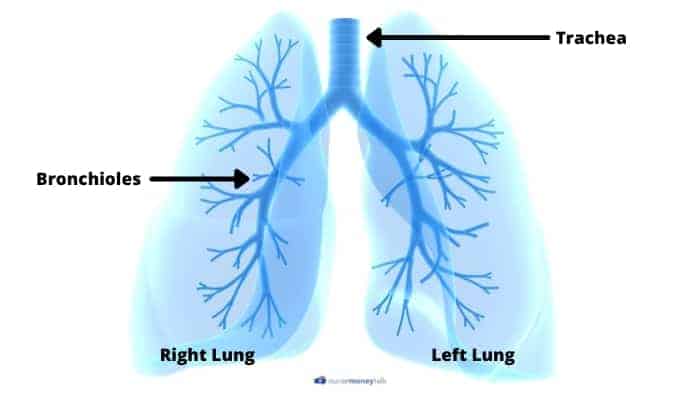I’m going to answer the question below about stethoscopes and whether or not nurses use them or if it’s just doctors that use them.
I was watching a re-run of a talk show and it gave me the impression that only doctors use stethoscopes but I thought nurses use them also.
*Disclosure: This article on do nurses use stethoscopes may contain affiliate links. If you click and make a purchase, I may receive a commission. For more info, please see my disclaimer.
Do Nurses Use Stethoscopes?
Nurses use stethoscopes to assess patient condition to make sure the patient is getting the most appropriate treatment and that the patient is responding appropriately to interventions as ordered by a physician.
Stethoscopes are a standard tool in the arsenal of most healthcare professionals. They’re pivotal in the diagnosing of patient conditions leading to effective treatment intervention.
Stethoscopes are more commonly associated with doctors, but nurses do use them.
FYI
If you were wondering, that talk show referenced in the question above is from an episode of a talk show called The View.
In that particular episode, after watching a monologue, one of the hosts made a reference about “why does she have a doctor’s stethoscope,” giving a false impression that doctors are the only healthcare workers that use a stethoscope.
FYI, there’s a lot of other professions that use stethoscopes not just physicians and nurses.
Here’s a clip from that show.
Why Do Nurses Use Stethoscopes
Here are some of the use cases for stethoscopes.
1. To Listen to Heart Sounds
Listening to heart sounds is probably the most common use case for stethoscopes.
Stethoscopes can help with diagnosing irregular heart sounds like heart murmurs. Nurses also use stethoscopes to monitor patients and make sure interventions related to the heart are working.
2. To Listen to Lung Sounds
Nurses and doctors use stethoscopes to listen to your lung sounds. More specifically, they’re checking to see how airflow is flowing through your trachea and bronchial tree.

3. Listening to Bowel Sounds
Another common use case for stethoscopes is to listen to bowel sounds.
For example, absent bowel sounds may be an indication of ileus or peritonitis. A hyperactive bowel sound may mean there’s an intestinal obstruction or gastrointestinal hypermotility.

4. For Manual Blood Pressure
Another use case that’s not as common but still done is to check your blood pressure manually. Nowadays, machines taking automatic blood pressures have gotten much better and are the preferred method in most cases.
Occasionally for various reasons, nurses will have to get a manual blood pressure. If you don’t know what I mean or you’ve never seen a manual blood pressure done, check out the video below.
How Often Do Nurses Use Stethoscopes?
A nurse in a high acuity unit such as the ICU could easily use their stethoscope once or twice per hour. In less acute units, nurses may only use their stethoscopes a handful of times a shift, if at all. How often a nurse uses their stethoscope is strictly dependent on the acuity of their patients.
Recommended Stethoscopes
If you’re on the lookout for a good stethoscope, here’s a list of my two favorite stethoscopes.
1. Best Overall: Littmann Cardiology IV
One of my favorite stethoscopes and one of the best unless you’re going for an electronic stethoscope is the Littmann Cardiology IV.
Superior build quality makes auscultating patient lung and heart sounds so much easier. It’s a premium stethoscope that unfortunately, comes at a premium price.
2. Best Budget: Littmann Class III
This stethoscope is a good all-around stethoscope. It’s a nice introductory stethoscope I typically recommend to nursing students or nurses on a budget and just need something to get themselves started.
Related: 10 Best Stethoscopes for Nurses
Nurses Everywhere Use Stethoscopes
As you hopefully have a stethoscope is an important tool in any nurse’s tool belt. Let me know in the comment section below if you have any questions. Don’t forget to check out some of our other articles.



